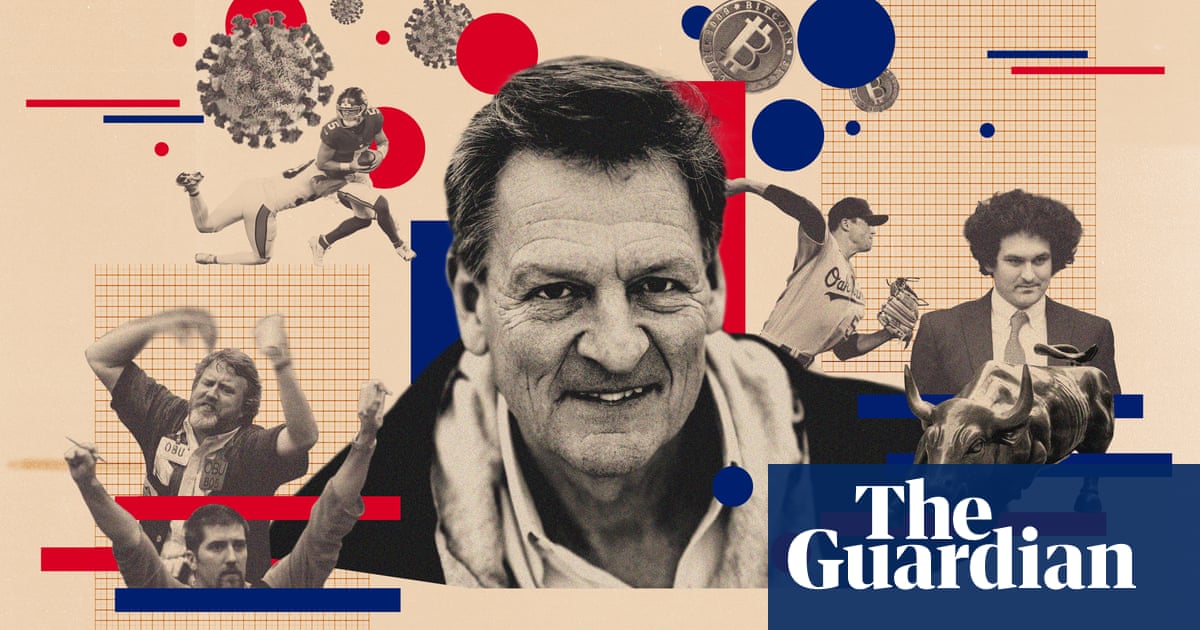Michael Lewis: The Fall of Sam Bankman-Fried Unveiled
Core Concepts
Lewis delves into the rise and fall of Sam Bankman-Fried, revealing a captivating narrative of wealth, power, and deception in the world of cryptocurrency.
Abstract
Michael Lewis explores the enigmatic world of finance through his encounters with key figures like Meredith Whitney and Sam Bankman-Fried. His ability to uncover hidden stories and predict future trends is showcased in his books, from detailing the 2008 crisis to exposing high-frequency trading manipulation. Lewis's unique approach humanizes complex financial events by focusing on individuals who challenge conventional wisdom and reshape industries. Despite controversies surrounding some characters, Lewis's narratives ultimately celebrate triumphs against adversity while offering insights into the darker sides of society.
Translate Source
To Another Language
Generate MindMap
from source content
Visit Source
www.theguardian.com
The insider: how Michael Lewis got a backstage pass for the fall of Sam Bankman-Fried
Stats
Meredith Whitney started her own financial research firm during the 2009 financial crisis.
Michael Lewis gained fame among US financiers for his insightful storytelling.
In "The Big Short," Lewis highlighted investors who profited from predicting the 2008 crash.
"Moneyball" became synonymous with quantification efforts in various fields.
Brad Pitt portrayed Billy Beane in the movie adaptation of "Moneyball."
Sam Bankman-Fried faced legal issues related to misuse of funds at FTX.
Quotes
"Michael finds these characters, falls in love with them a little bit, and makes them into heroes." - Former colleague on Michael Lewis's writing style
"It’s this cancel culture thing. It takes an act of courage to stand up to the mob." - Michael Lewis on defending characters criticized in his books
"I don’t think capitalism functions without referees." - Michael Lewis on market regulations
Deeper Inquiries
How does Michael Lewis navigate portraying real-life individuals as heroes while facing criticism for potentially oversimplifying their stories?
Michael Lewis navigates the portrayal of real-life individuals as heroes by emphasizing their positive attributes and framing their actions in a heroic light. He often focuses on the unique qualities or achievements of his characters, presenting them as mavericks who triumph against adversity. However, this approach can lead to criticism for oversimplifying their stories and glossing over complexities. To address this, Lewis attempts to provide nuance by delving into the motivations and challenges faced by these individuals. Despite his efforts to highlight the human side of his characters, there is still a risk of idealizing them and overlooking potential flaws or controversies.
How does effective altruism impact characters like Sam Bankman-Fried as depicted by Michael Lewis?
Effective altruism plays a significant role in shaping characters like Sam Bankman-Fried in Michael Lewis's narrative. Bankman-Fried's adherence to effective altruism, which involves giving away most of one's wealth to maximize social good, adds depth to his character and influences his decisions throughout the story. This commitment to philanthropy sets him apart from traditional wealthy figures and contributes to his portrayal as an unconventional hero driven by noble intentions. By showcasing Bankman-Fried's engagement with effective altruism, Lewis highlights a different dimension of wealth accumulation and underscores the complexity of moral choices faced by modern-day entrepreneurs.
How does Michael Lewis balance storytelling integrity with maintaining relationships when writing about controversial topics?
Michael Lewis faces the challenge of balancing storytelling integrity with maintaining relationships when tackling controversial topics in his work. While he aims to present authentic narratives that capture the essence of complex issues or events, he also values preserving connections with key figures involved in these stories. To achieve this balance, Lewis employs various strategies such as seeking multiple perspectives, fact-checking rigorously, and ensuring transparency in his reporting process. Additionally, he may choose not to delve into certain sensitive aspects out of respect for personal boundaries or ethical considerations related to privacy or reputation management. By navigating these dynamics thoughtfully, Lewis strives to uphold both storytelling integrity and professional relationships within the context of contentious subject matter.

